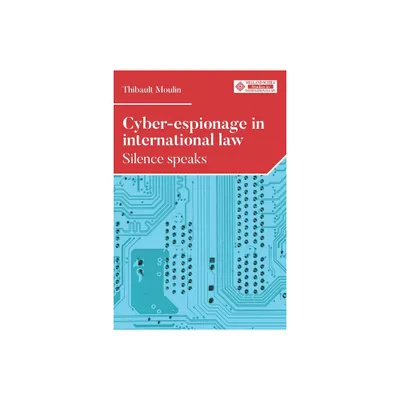Home
Colonial Wrongs and Access to International Law
Loading Inventory...
Barnes and Noble
Colonial Wrongs and Access to International Law
Current price: $40.00


Barnes and Noble
Colonial Wrongs and Access to International Law
Current price: $40.00
Loading Inventory...
Size: OS
*Product Information may vary - to confirm product availability, pricing, and additional information please contact Barnes and Noble
This eye-opening book invites careful reflection on how we should respond to colonial and post-colonial wrongs from the perspective of international law, in particular international criminal law. In addition to a dozen case studies, the book offers analyses based on legal concepts such as subjugation,
debellatio
, continuing crime, and transfer of civilians, as well as on the discourses of Third World Approaches to International Law and transitional justice. It contains a number of practical suggestions for what can be done to enhance a sense of access to international law in connection with colonial wrongs.
The book has eighteen chapters organised in five parts, addressing the context of the discussion on colonial wrongs and access to international law, legal notions, Colonial Burma, other former colonial territories, and indigenous populations. You find contributions by Morten Bergsmo, Joshua Castellino, Kevin Crow, Christophe Deprez, Shannon Fyfe, Gregory S. Gordon, Brigid Inder OBE, Wolfgang Kaleck, Asad Kiyani, Kyaw Yin Hlaing, Jacques P. Leider, LING Yan, Christophe Marchand, Hugo van der Merwe, Ryan Mitchell, Annah Moyo, Mutoy Mubiala, Matthias Neuner, Narinder Singh, Gunnar Ekeløve-Slydal, Derek Tonkin, Crépine Uwashema and YANG Ken.
In their foreword, the co-editors explain - with reference to lingering consequences of the slave-based economy - why the book is dedicated to "those who will transmute the legacies of colonial wrongs and slavery into a wider, world-embracing solidarity and unity". The book calls for renewed leadership in this area.
debellatio
, continuing crime, and transfer of civilians, as well as on the discourses of Third World Approaches to International Law and transitional justice. It contains a number of practical suggestions for what can be done to enhance a sense of access to international law in connection with colonial wrongs.
The book has eighteen chapters organised in five parts, addressing the context of the discussion on colonial wrongs and access to international law, legal notions, Colonial Burma, other former colonial territories, and indigenous populations. You find contributions by Morten Bergsmo, Joshua Castellino, Kevin Crow, Christophe Deprez, Shannon Fyfe, Gregory S. Gordon, Brigid Inder OBE, Wolfgang Kaleck, Asad Kiyani, Kyaw Yin Hlaing, Jacques P. Leider, LING Yan, Christophe Marchand, Hugo van der Merwe, Ryan Mitchell, Annah Moyo, Mutoy Mubiala, Matthias Neuner, Narinder Singh, Gunnar Ekeløve-Slydal, Derek Tonkin, Crépine Uwashema and YANG Ken.
In their foreword, the co-editors explain - with reference to lingering consequences of the slave-based economy - why the book is dedicated to "those who will transmute the legacies of colonial wrongs and slavery into a wider, world-embracing solidarity and unity". The book calls for renewed leadership in this area.


















